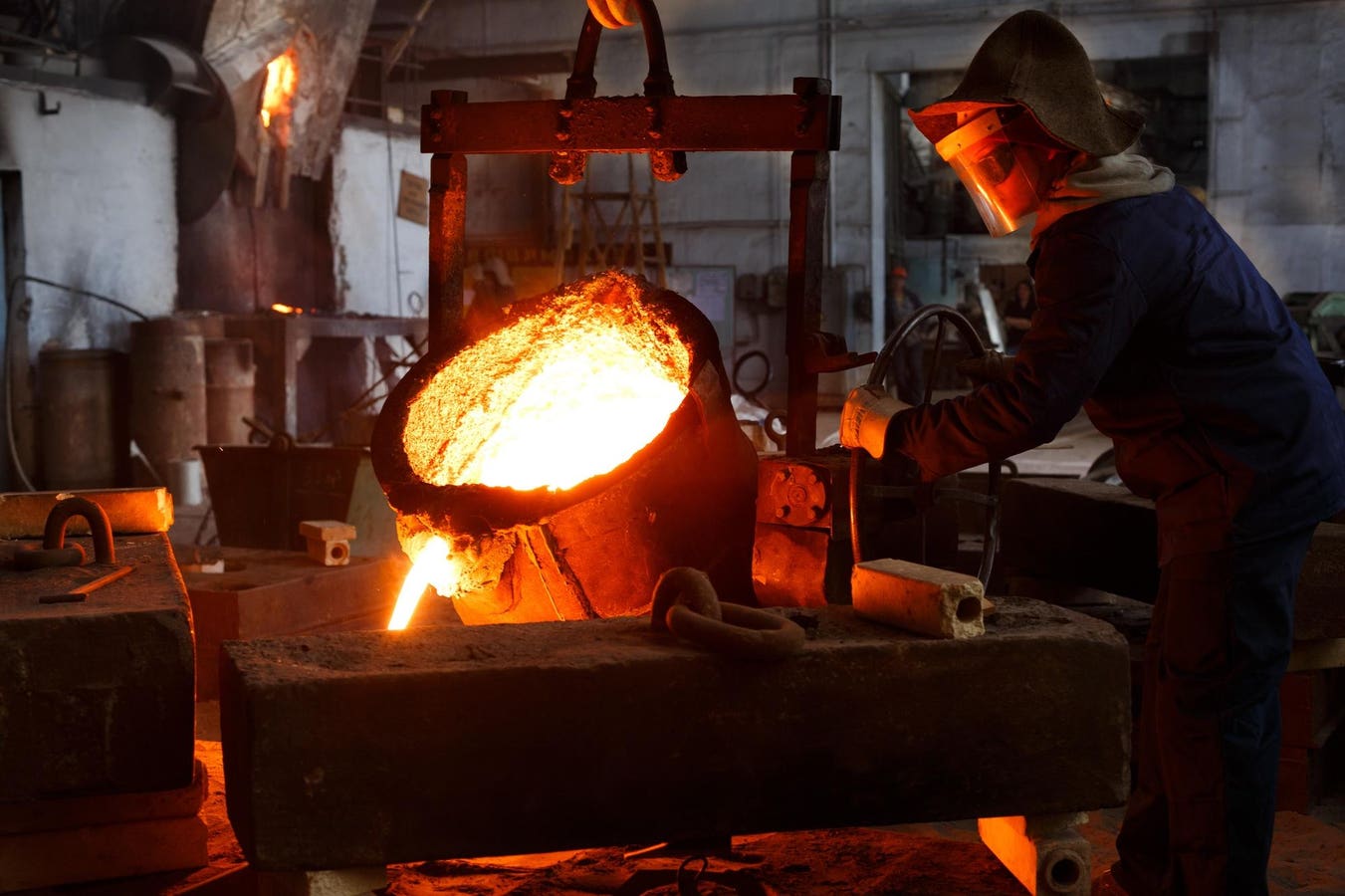Casting—pouring molten metal into molds to create new components—is one of the fundamental skills … More
With all the focus currently on skilled trades training and recruiting, one vital area that hasn’t gotten a lot of attention is the fundamental processes of making things from metal. The Metallurgical Engineering Trades Apprenticeship & Learning program was founded in June 2024 to help with that, and its latest win is a new partnership with Michigan Technological University in Houghton, Michigan.
METAL is led by the Institute for Advanced Composites Manufacturing Innovation with funding from the Department of Defense’s Industrial Base Analysis and Sustainment program, It focuses breakthrough education and awareness efforts on the metallurgical processes of casting, forging and plate rolling.
The new partnership will provide workforce training to strengthen metalworking industries. As METAL’s newest hub operator, Michigan Tech joins The Ohio State University, the University of Tennessee in Knoxville, the University of Alabama in Birmingham, and Pennsylvania State University in helping deliver METAL’s nationally recognized curriculum, facilitate instructor certification, and launch boot camps and academic pathways for metalworking professionals. MTU will also integrate METAL training into its existing Summer Youth Programs, offering an introduction to metalworking, metallurgy and materials science to high school students from across the Upper Midwest.
Plate rolling—running hot metal through progressive roll mills to create thinner slabs—is another of … More
“We’re trying to create exposure,” Greg Harrell, workforce coordinator at IACMI, told me in an interview. “K through gray is what we call it, from kindergarten all the way through to adults, to expose them to different types of metallurgical-type processes.”
“So Michigan Tech, one of the ones things they’re doing is summer youth programs,” added Michael Kubacki, project coordinator at IACMI added. “We’re able to help fund those so that they have more casting and forging curriculum, or expand on it, add more summer youth programs to try to get more kids interested. It can also drive them to take a metal or material science or engineering course at school so you can help drive admissions into the higher degree pathways for engineering.”
The MTU hub curriculum will combine interactive online learning with in-person casting and forging boot camps at MTU’s state-of-the-art labs. Future educational modules will incorporate training on automation in casting and forging and will open pathways to employment in critical industry roles.
“We have a fully working foundry,” Alexandra Glover, assistant professor of materials science and engineering at MTU, said in an interview. “We have full-time staff who work there. So it’s a really easy thing for us to slot in. As a department, we’ve taught a very rigorous castings class for a very long time, and so curriculum-wise, a lot of the activities line up really well with METAL. We’re used to having large groups of students in our foundry all the time.”
Forging—using powerful presses to shape hot metal—is another of the METAL program’s fundamental … More
Glover sees additional educational opportunities arising as the program moves forward. “We’re making some upgrades to the facilities, just to have better teaching spaces, designated spaces where we don’t have to deconflict research and teaching as much. We are getting a mill and a lathe so we can incorporate some machining into our program… Right now, they are mostly focused on casting. My background is actually in forging. For me, I would love to get more into the metalworking space.”
Growing the program is also a focus for IACMI as well. “We’re going to continue to grow our network,” said Kubacki. “We have a proposal out there that is not yet to be executed, but we’re told soon that’ll help us get eight to 10 more sites. … We also have Ohio State, and one of their deliverables is plans for a mobile foundry.”
“We’re also trying to integrate the METAL program into our high schools,” added Harrell. “We’re doing one in Grange County here in Tennessee. We’re integrating our place like a workshop where the kids will melt tin, they’ll create a mold, they’ll pour that, and we’ll have some curriculum-building around that with the teachers there. We have a lot of outreach programs we’re doing there to try to spark more interest in the metallurgical-type processes.”
From her perch at Michigan Tech, Glover sees both the need for, and the tremendous opportunities that can arise from, programs like METAL. “There’s a ton of need for people to enter this workforce, a ton of opportunity to develop new technologies. Our factories and our forging houses and our metalworking spaces need to be modernized. They need a high level of investment over the next couple decades just to meet the manufacturing needs of this country. And that really hasn’t been the case for a long time. So it’s a really exciting time, and it’s also a great area for employment. Michigan Tech grads have a super-high employment rate. I think that’s true for engineering in general, and this is a great industry that has had a lot of hiring and continues to have a lot of hiring. And that’s true both on the college side and on the trade side. You can make a really good career out of being a trades person in a metalworking space.”




